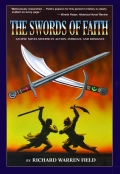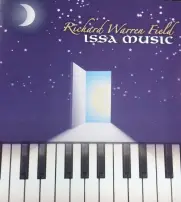The Pillars of the Earth – Comments on Episode Three August 7, 2010
Posted by rwf1954 in historical fiction, Ken Follette, television commentary, The Pillars of the Earth, Uncategorized.Tags: commentary, comments, historical fiction, Ken Follette, The Pillars of the Earth
trackback
(Richard Warren Field wrote the award-winning novel,
The Swords of Faith. Read why this book will make a great movie.)
Let’s acknowledge it right now—the people who have adapted The Pillars of the Earth for television are masters of the cliff-hanger! Two major heroes of the story end this episode in serious jeopardy. They tried to lead us to believe that we should give Jack up for dead. (But we didn’t believe it, did we?) At the end, we see his eyes flicker open as he nestles among a heap of corpses in a mass grave, so we have a hint he’ll get out of his apparent jeopardy. But Prior Philip is on his way to the gallows. That’s where they’ve left us—brilliant mini-series television, the kind of television that drives viewers nuts but brings them back for more! How did they get us to this point, and do we have any semblance of the original novel still present?
The second question/short answer—yes. The mini-series moves in and out of synch with the novel, with a major step back in synch, as I will comment below. The novel remains changed in some material ways, with the mini-series struggling to maintain the original shape of the novel after various detours. I’ll answer that first question, how we got to this point, with some comments on developments this week, sprinkled with my own views on how well I believe the deviations from the original novel are working.
- Right at the top of the episode, set four years later, Richard’s character development is brought up-to-date with the original novel. He is now a brave, effective fighter for King Stephen, a threat to William’s desire to gain the earldom of Shiring for himself. Richard’s emergence as a worthy knight is a key element of the story, and the update proceeds seamlessly. In my last post, I wondered about this issue—as far as I’m concerned, problem solved.
- To sharpen this conflict between William and Richard, we have the death of William’s father. In the novel, he dies of an illness. In the mini-series, the twisted, weird mother of William bleeds her ill husband to death, deliberately killing him to improve William’s prospects to inherit the earldom. So this incest-tinged relationship between William and his mother continues. My distaste for this deviation from the book also continues. It seems pointless, almost cartoonish in its execution. But the death of the earl of Shiring does leave open who will inherit the earldom, and as in the novel, King Stephen states he has not decided which of his worthy warriors he will choose. This is a nice juicy conflict, driving the story.
- In my last post, I commented how Stephen was at Kingsbridge when he was supposed to be at the Battle of Lincoln. The creators of the mini-series have solved this by inserting what is in effect a second Battle of Lincoln, bringing this part of the plot of the mini-series back in synch with the novel. This second battle stems from an effort to relieve King Stephen’s siege of Maud at the castle at Lincoln. The relief force is commanded by Maud’s brother. Richard distinguishes himself by capturing Maude’s brother, but King Stephen is also captured, leading to a planned prisoner exchange. Maud’s forces win, with Maud retaining her position at the castle, and with the prospect that she will now become the reigning queen. This outcome could also bring the mini-series back in synch with the novel, depending on how the story evolves next week.
- And Waleran Bigod continues his unambiguously evil actions. In the novel, William of Hamleigh is by far the most despicable villain. Waleran Bigod is a schemer and a conniver, lusting for power. But there still remains a hint that he is, in essence, loyal to the church and its teachings—he simply thinks that his advancement is in the best interests of the church. In the mini-series, William Hamleigh is more of a hapless clown, manipulated by Bigod and his creepy mother, maybe even a victim of his mother’s twisted nature. Bigod is truly an evil man, orchestrating the torture and confession, and sentence to execution, of his subordinate monk, Prior Philip. Bigod presides over the torture, seeming to enjoy Philip’s torment. I suspect his fate in the mini-series will be different than in the book. We are about half way through the mini-series, so my opinion on this change in Bigod’s character should be considered preliminary. But I prefer the book’s less heavy-handed, more nuanced approach to Bigod.
- The mini-series also sets up the rivalry between Jack and Alfred for Aliena, but with key aspects changed. I miss the way Jack wins Aliena’s heart with subtle, simple actions that first build friendship, then slip into love. But that was probably not a plausible alternative for a mini-series. So I think the different approach to Jack and Aliena was needed, and will be effective, with strong dramatic and visual potential. If there is interest in a more subtle story-line for these two, the book is the place to go! As for the mini-series, we have Alfred informing Aliena of Jack’s death. This will probably lead to the same basic events that occur in the book, but with variations that will keep those of us familiar with the novel guessing.
- Tom Builder tells Ellen about Jack’s death, though she declares she doesn’t believe it. This is the only scene involving this strong character, marginalized by the decision to ostracize her from the story as a result of the witch accusation and her response during the first episode.
- The Kingsbridge license is handled differently than in the mini-series up to this point, largely because of the out-of-synch situation caused by the repositioning of the Battle of Lincoln in the mini-series. I suspect the conflicts surrounding the license will now resynchronize, and we’ll wait for next week’s episode to see how that plays out. The license is a key issue in the book, as I suspect it will be in the mini-series.
- King Stephen orders Jack killed, as he remains haunted by Jack’s apparent resemblance to a potentially damaging actor in the vision King Stephen experiences at the end of last week’s episode. (There is nothing like this in the book.) This keeps Jack front-and-center as part of the succession controversy pertaining to the English throne, with this episode tangling William’s mother into those events as well.
- Waleran Bigod switches sides to Maud, and convinces William and his mother to do the same. This also occurs in the novel. Bigod seems to be playing a very dangerous game, and I’m not sure if this successful switch of allegiances is particularly credible. But, he switches sides at the same time in almost the same way in the book. And in the book, King Stephen’s own brother, Bigod’s superior, also switches sides to Maud!
So, Philip is about to be hanged. The clues to his potential reprieve were in episode one, and hinted at in an instant in this episode. And if the reprieve goes as I think it will, much of the plot of this great novel will be back in synch. But I don’t count on it to stay that way. We are fools if we don’t expect another cliffhanger a week from now!
I’ll be back with more comments next Saturday.
(Synopsis of The Pillars of the Earth novel.)
*****






Great post!!:)
jeffrey donovan interviews